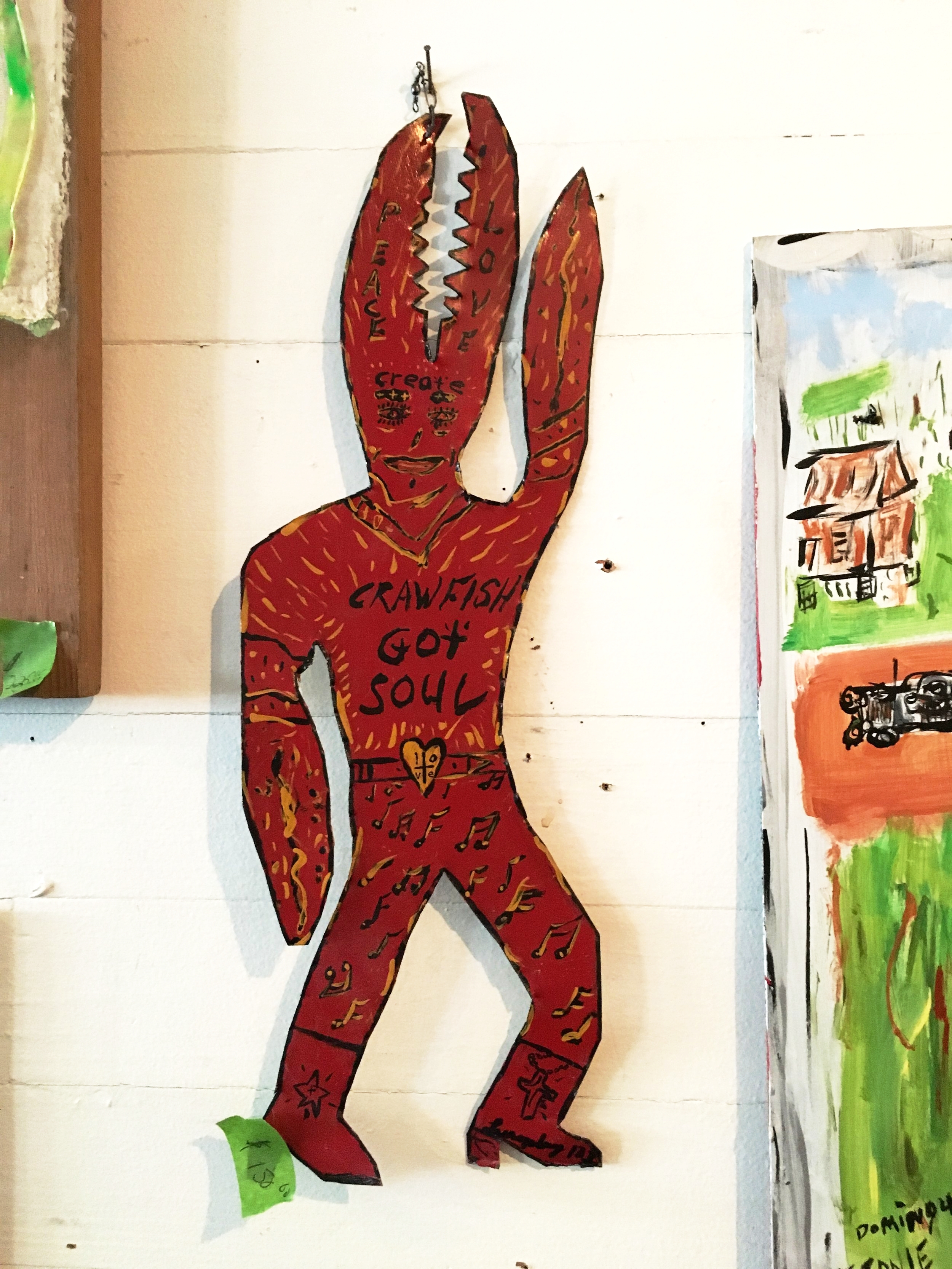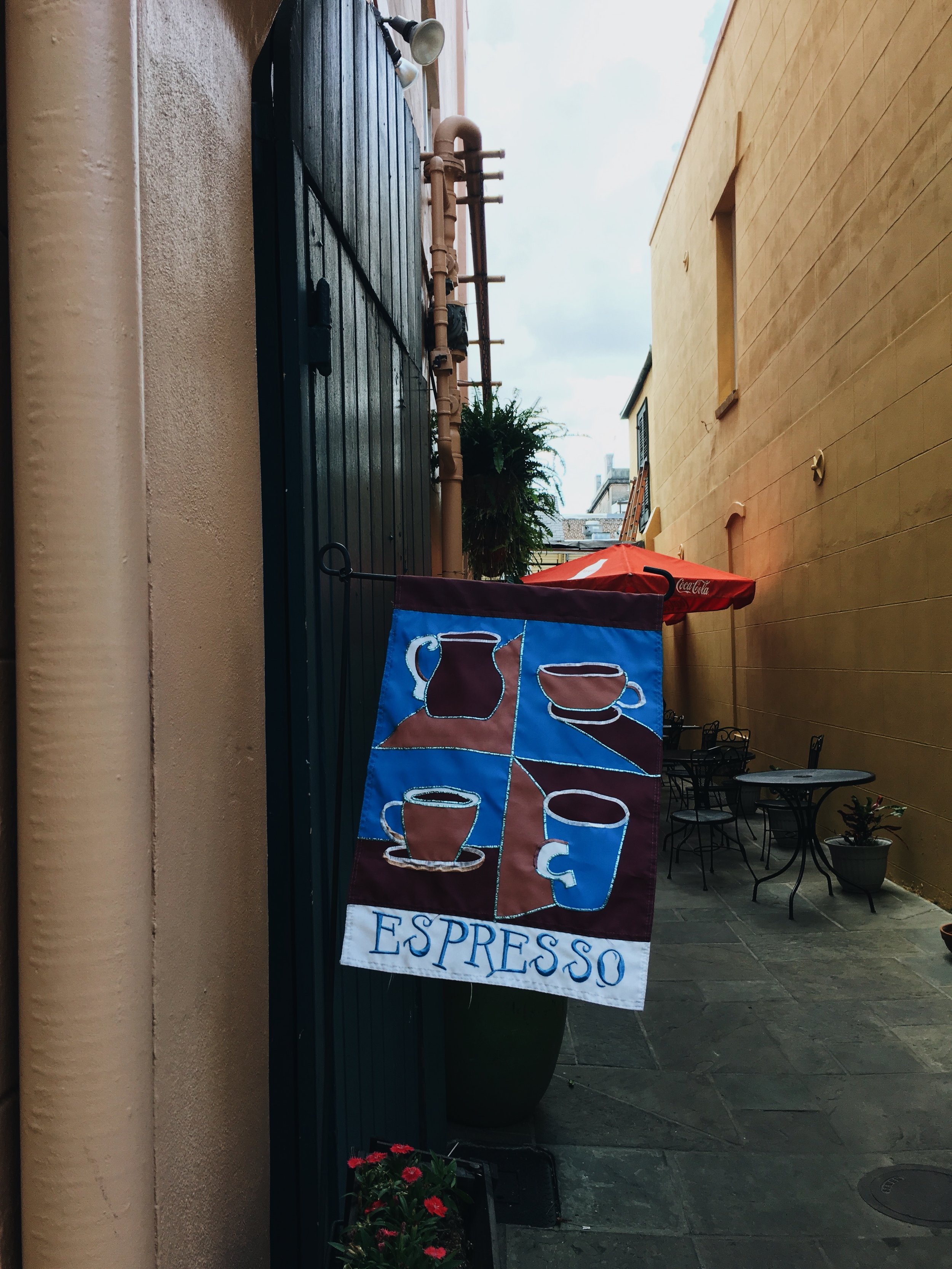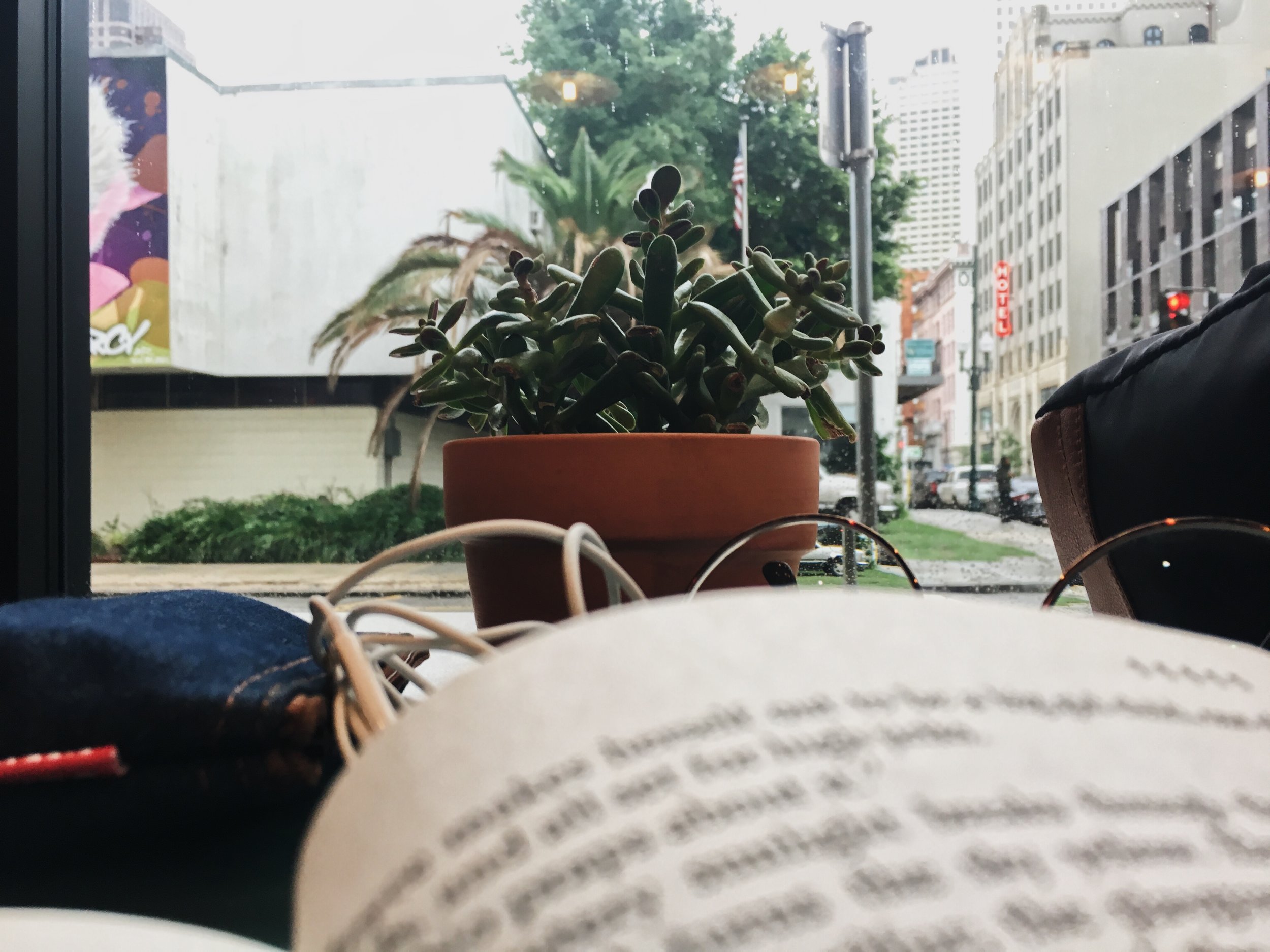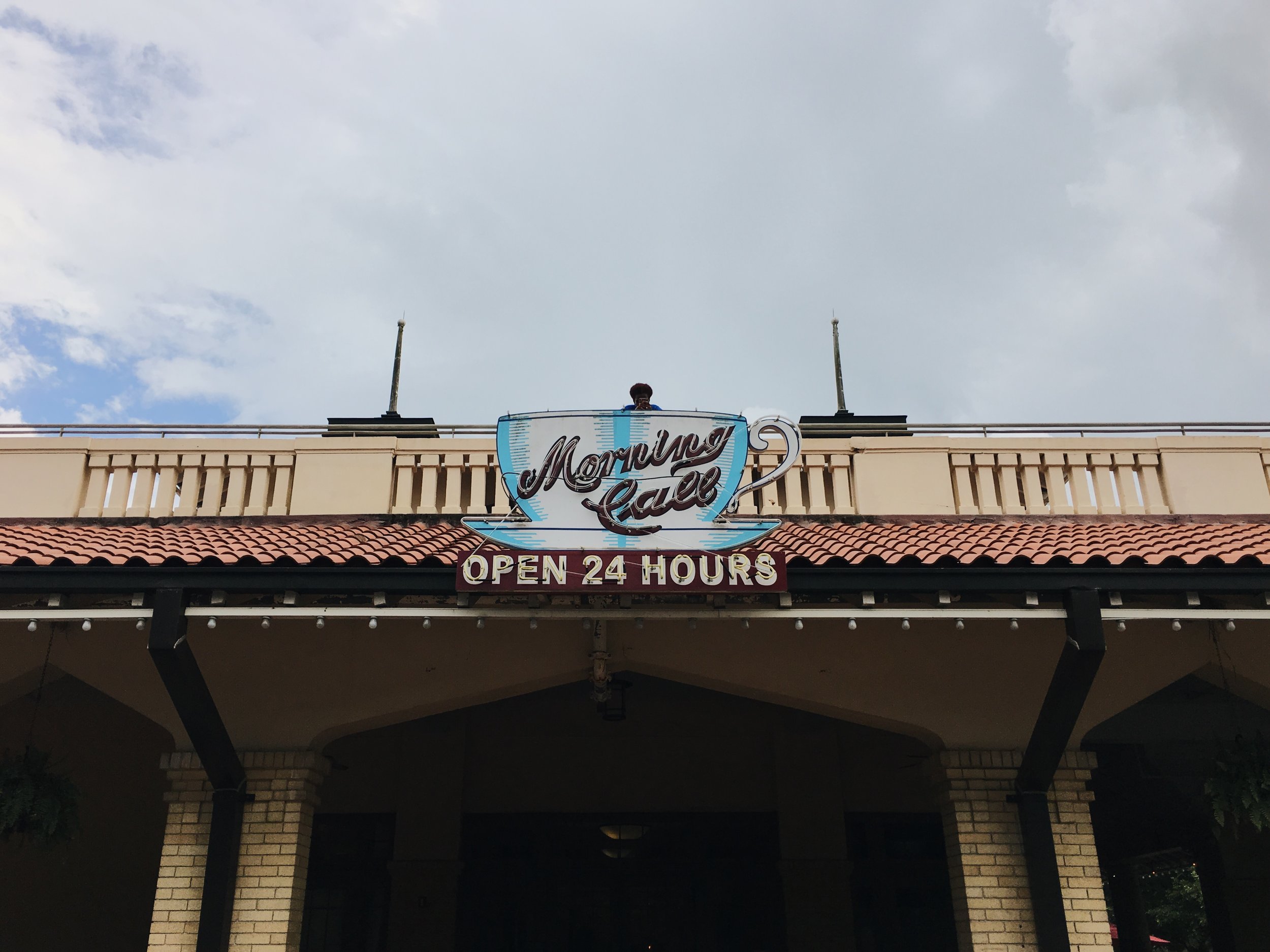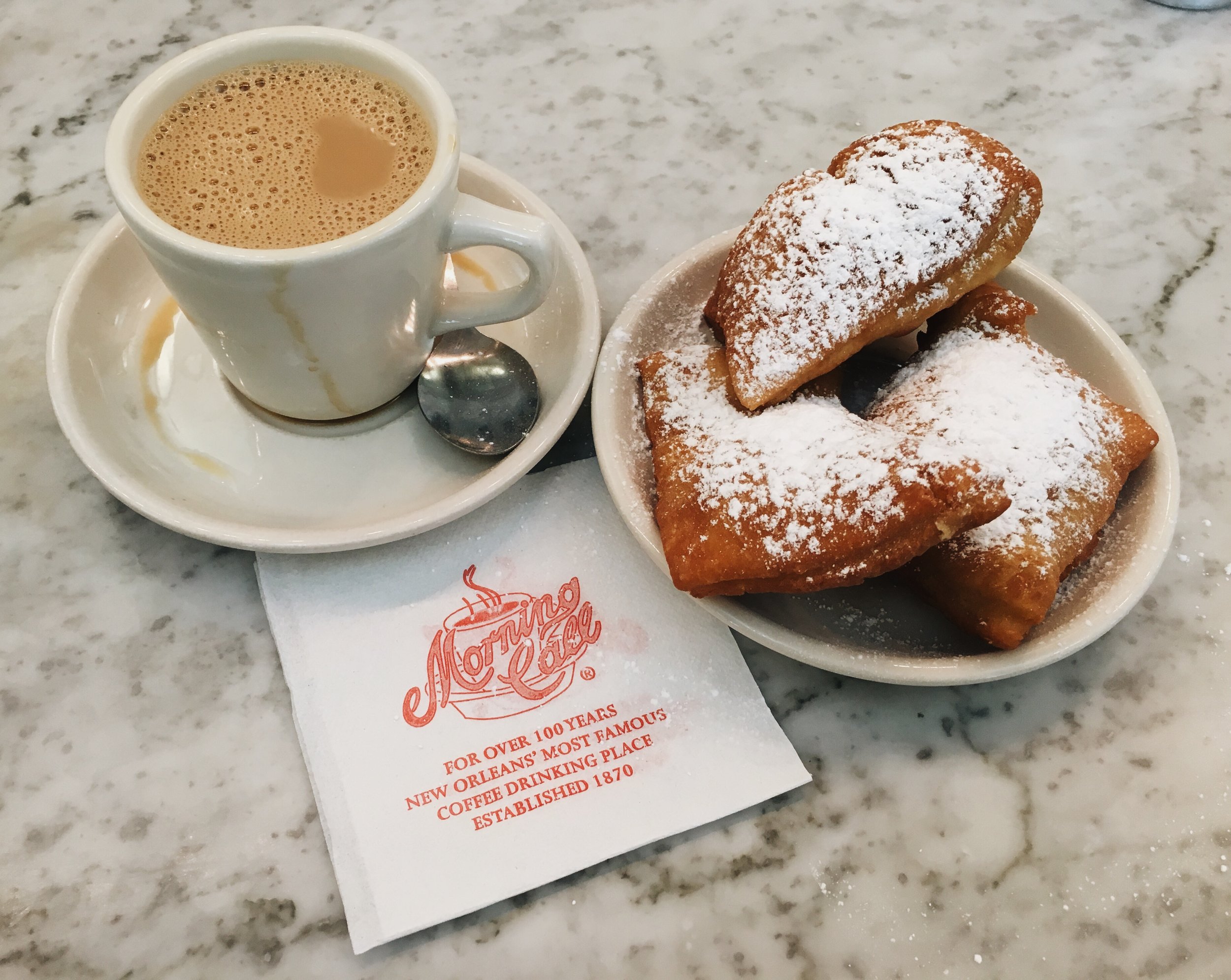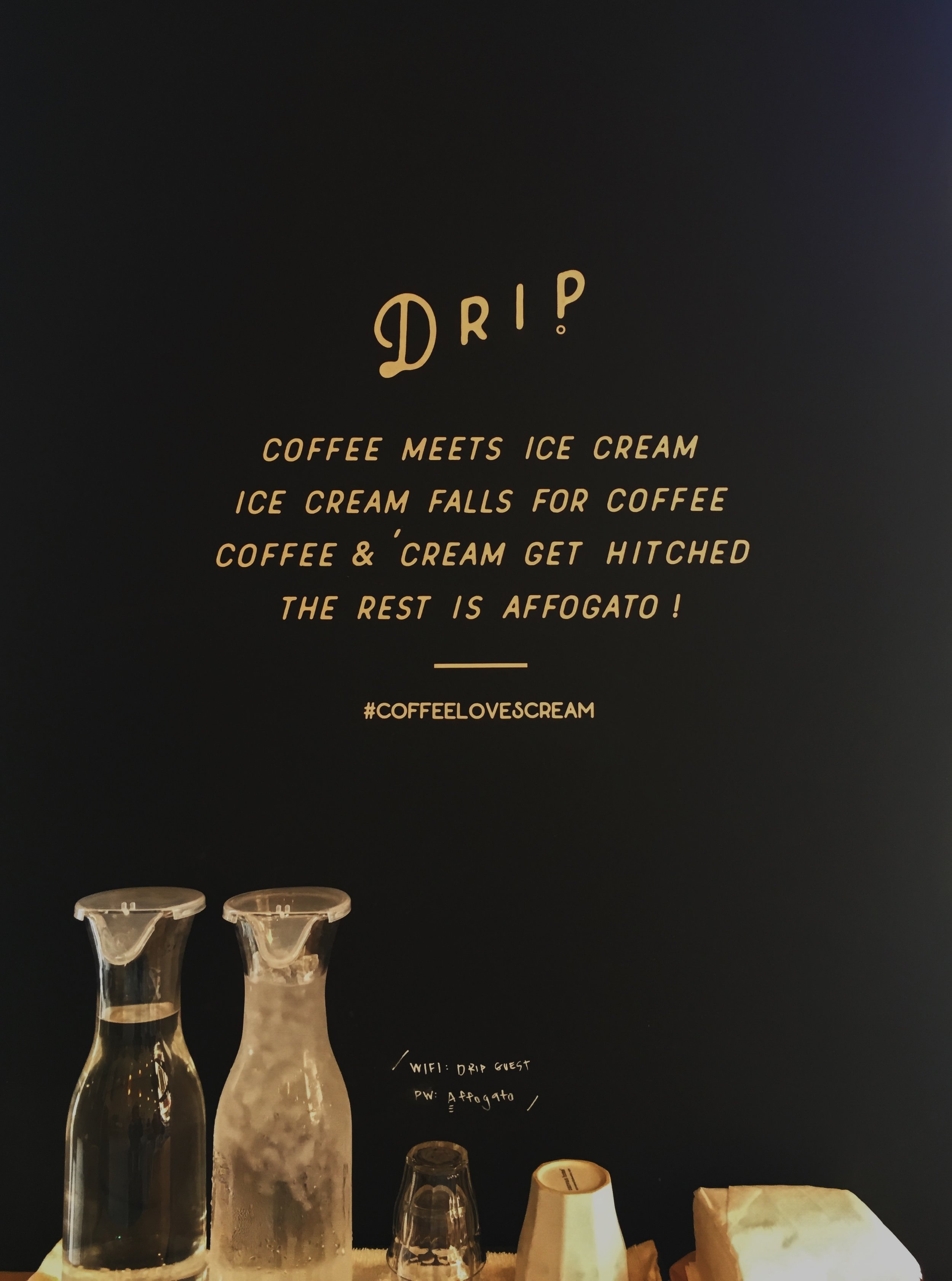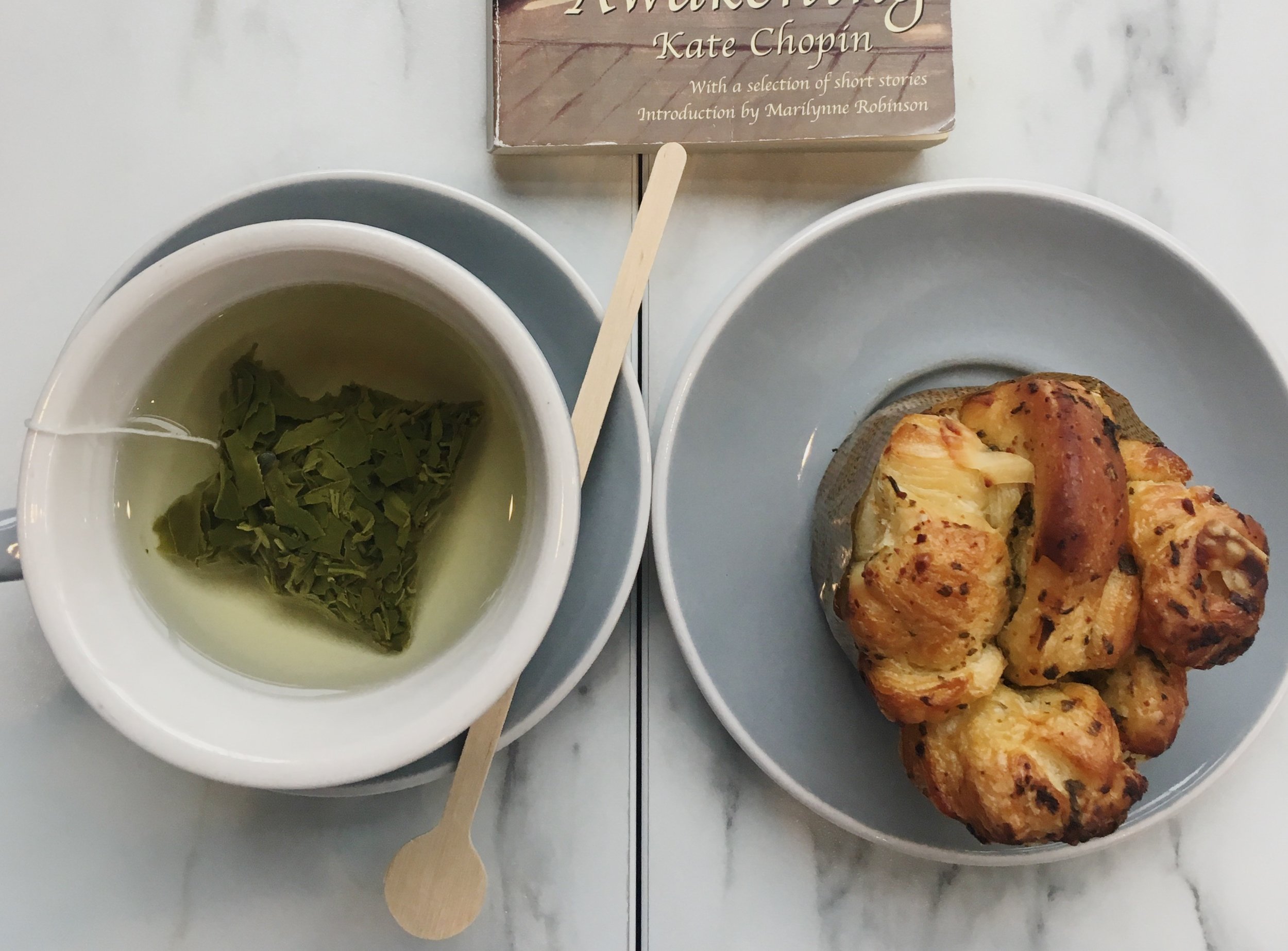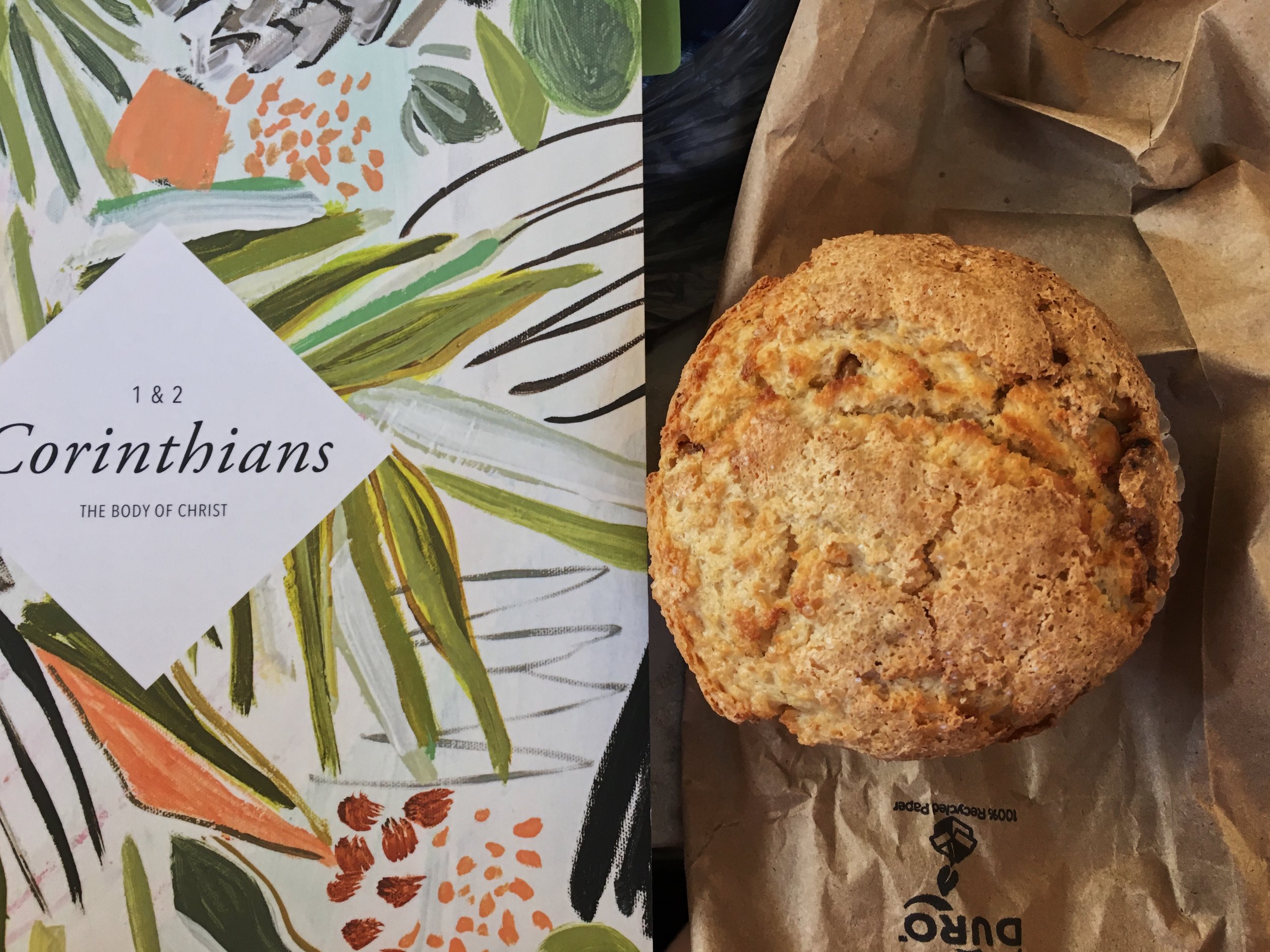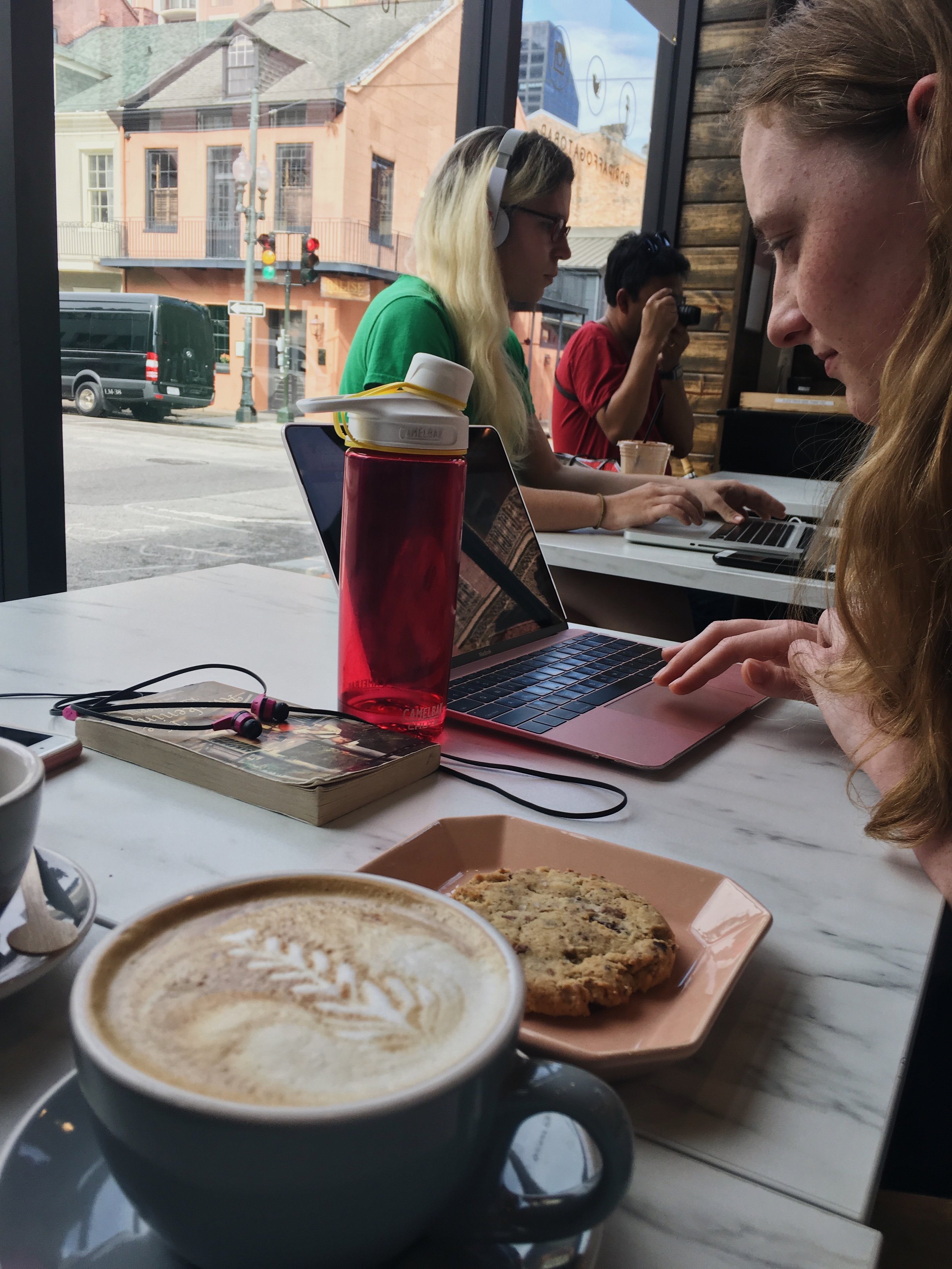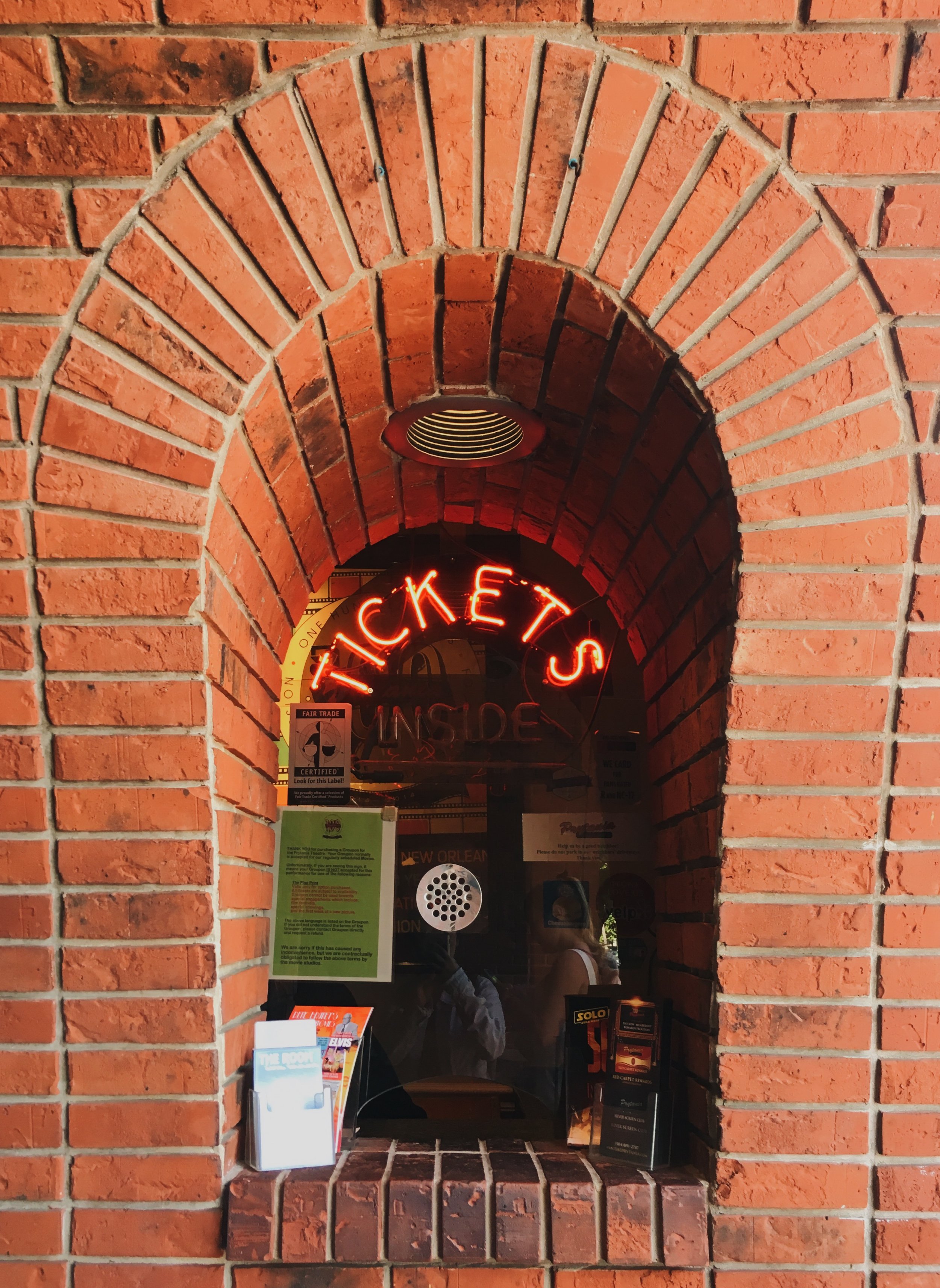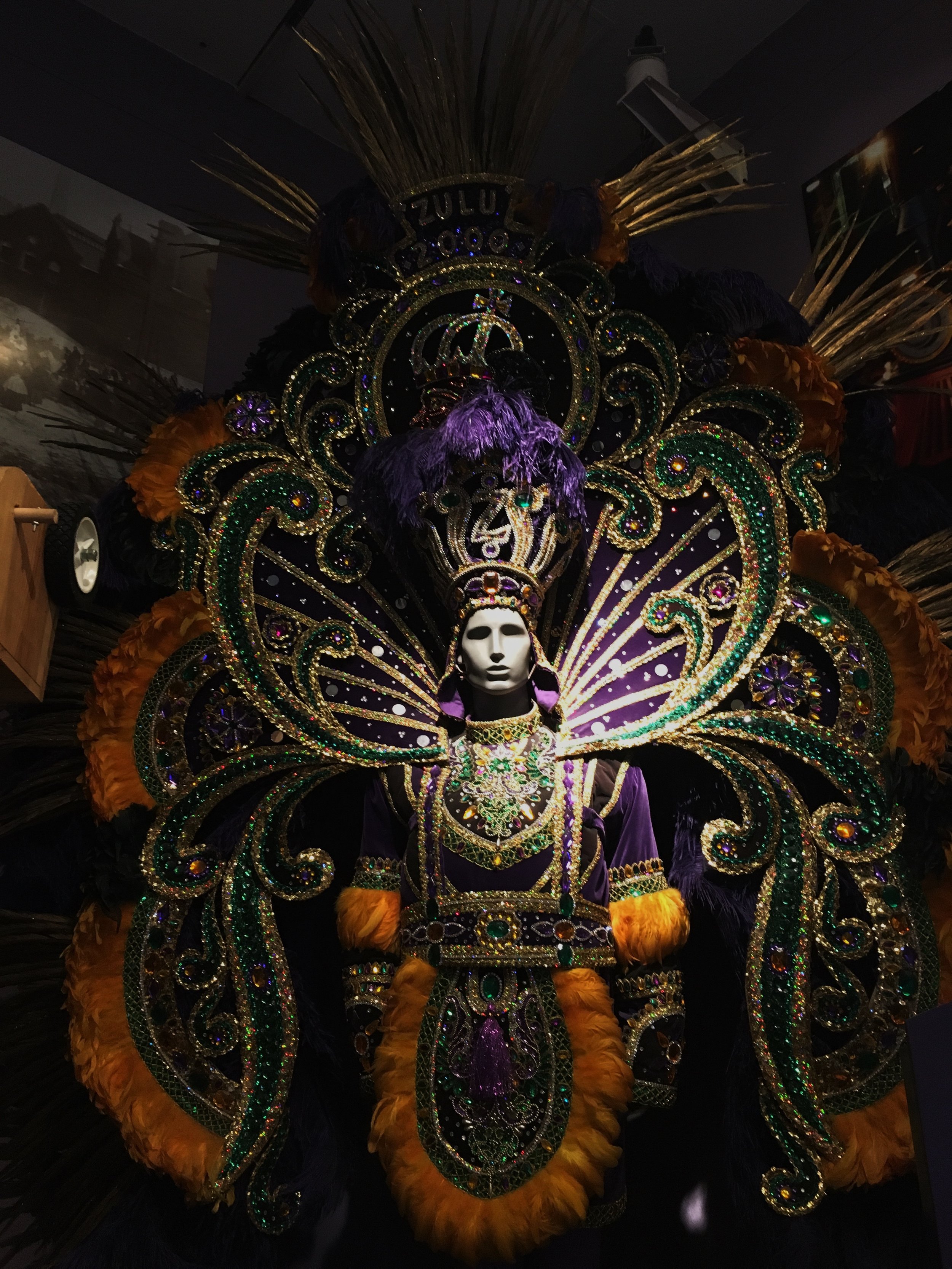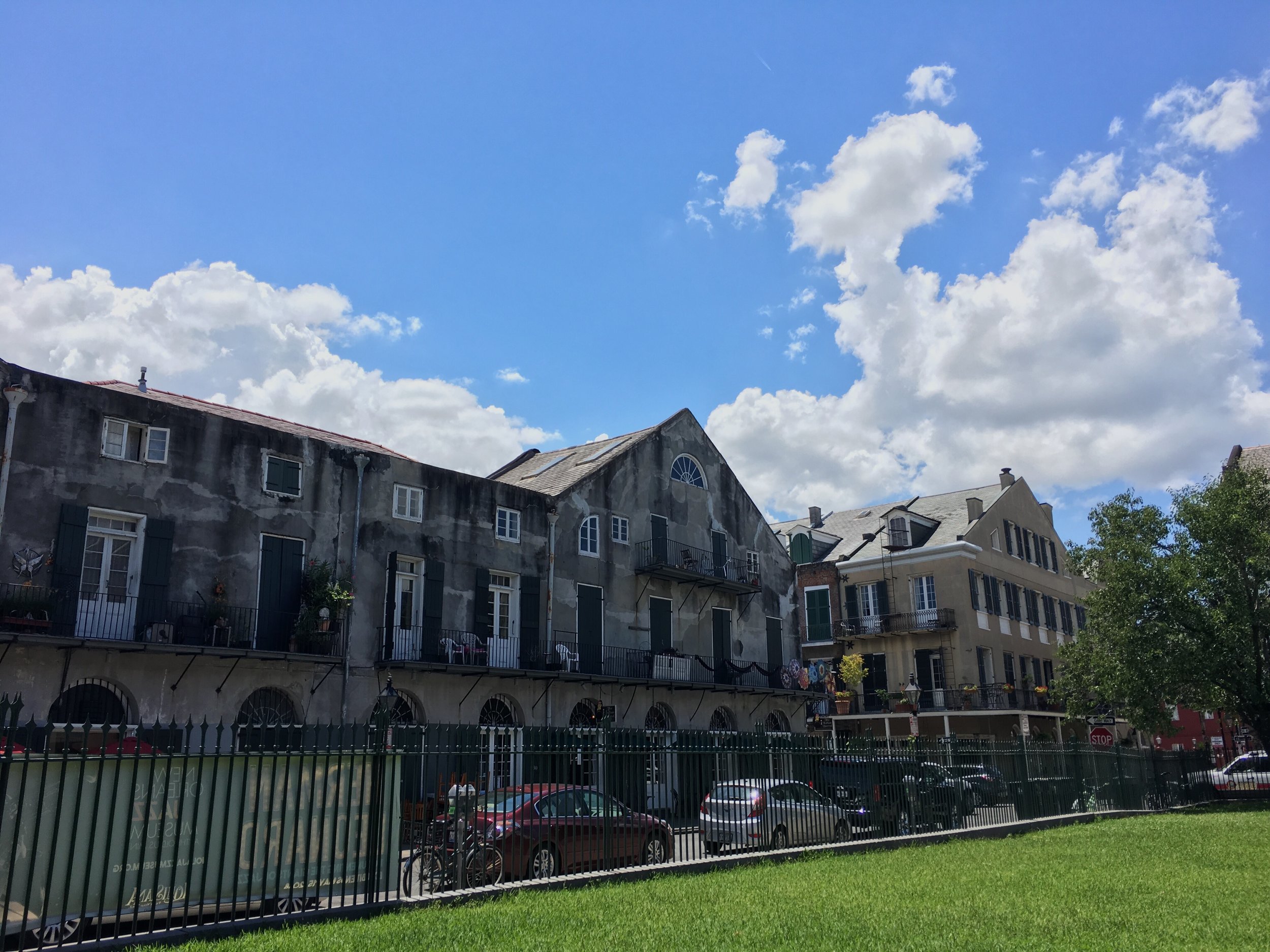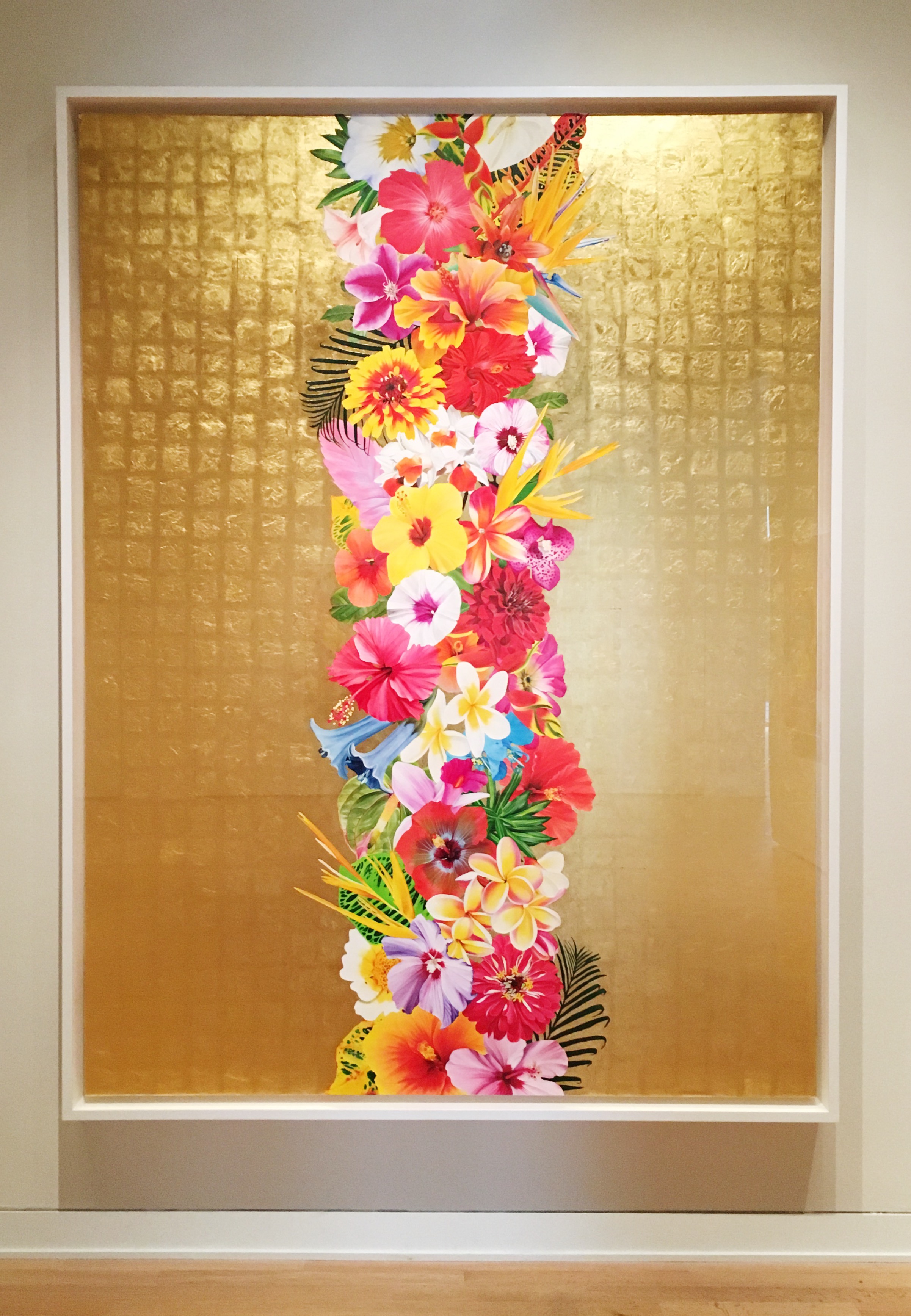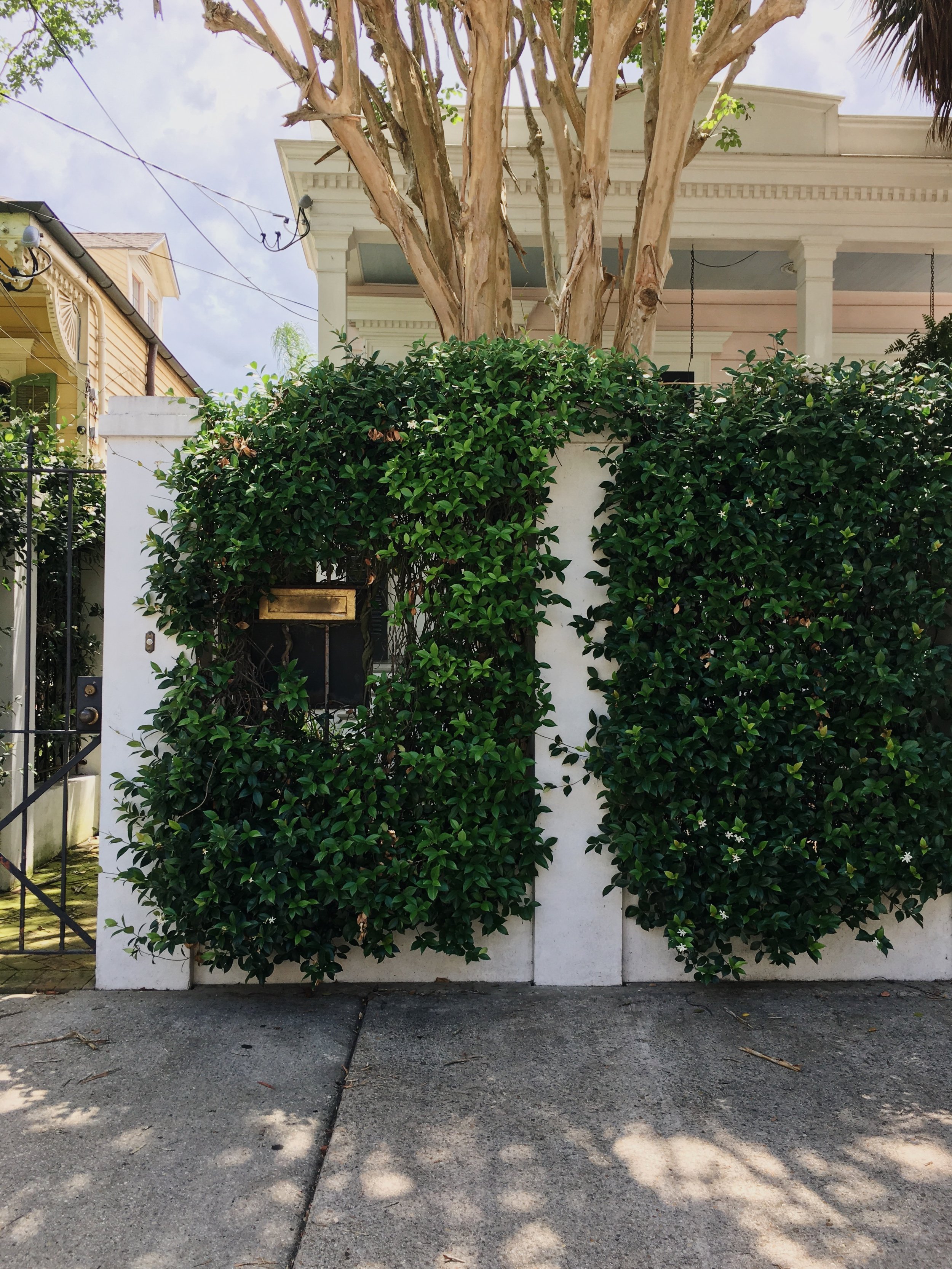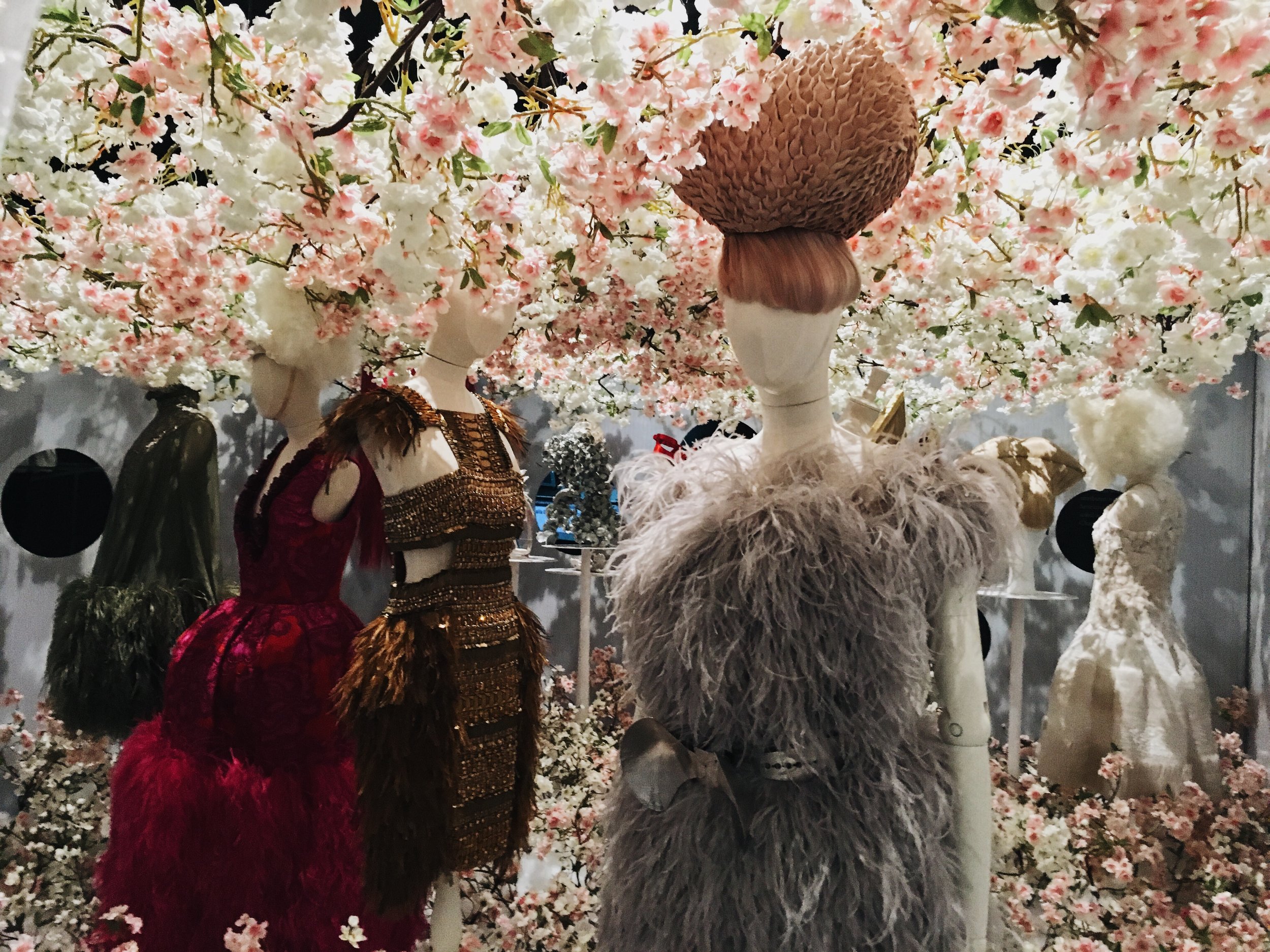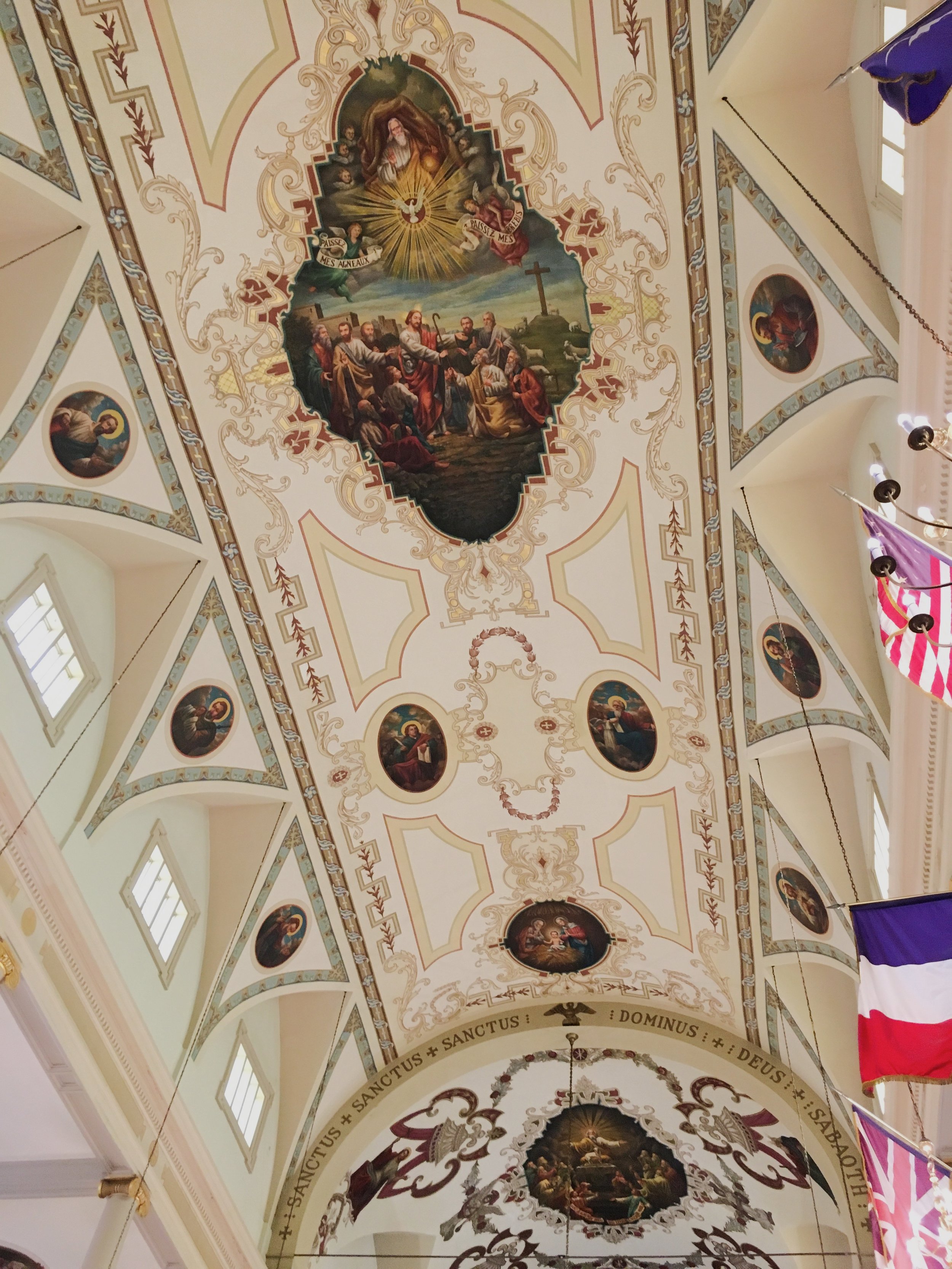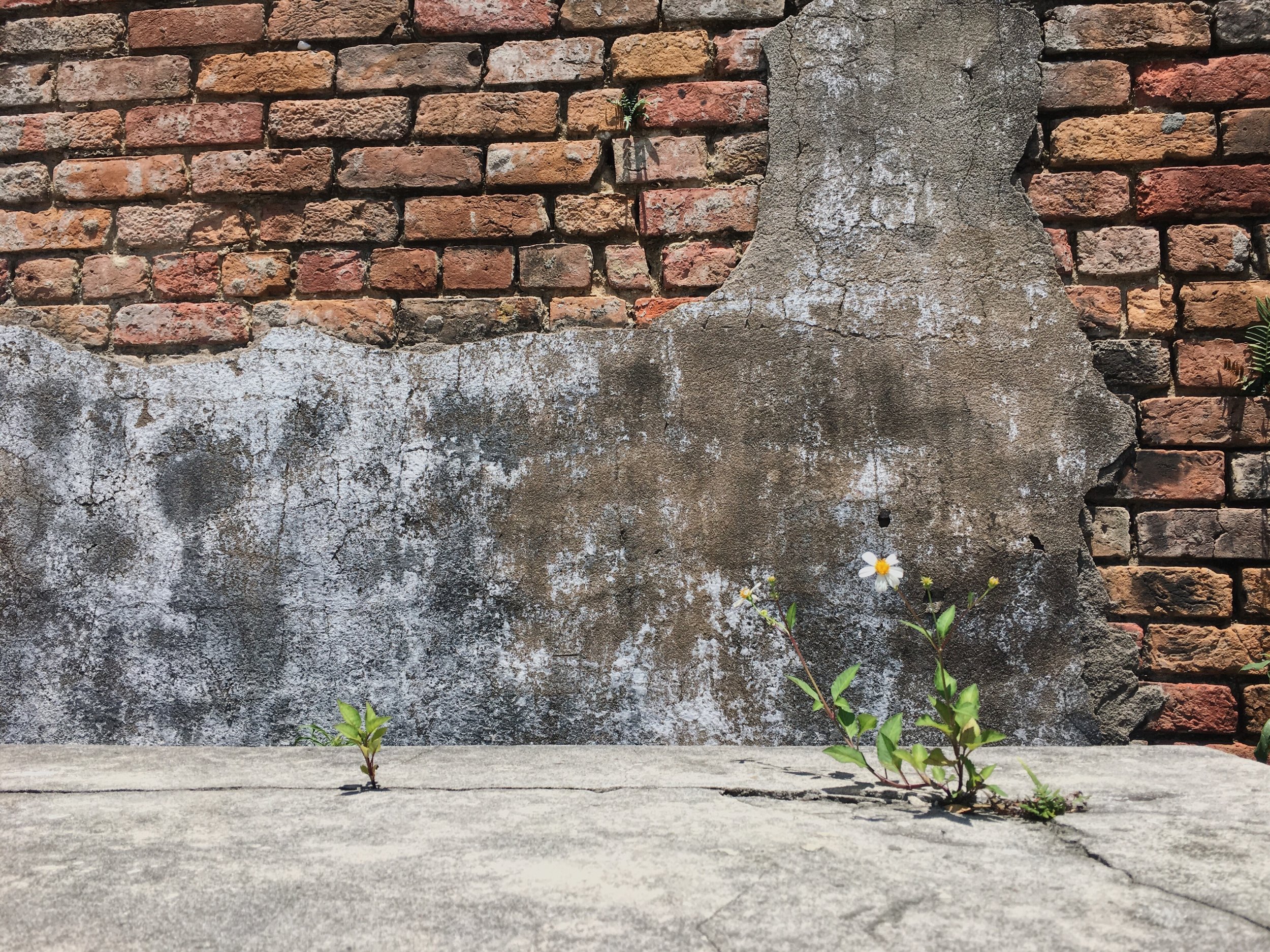"One's destination is never a place, but always a new way of seeing things."
Believing You are Loved
My Cup of Tea
“You can never get a cup of tea large enough or a book long enough
to suit me.”
- C.S. Lewis
There’s something about coffee shops that intrigue me. Having your body be rejuvenated by a warm, aromatic drink. Coming out of the café with your clothes permeated with the smell of rich java. Feeling empowered to either completely get in the zone or to just unwind with a good book in hand. These are the memories of my favorite setting. Back at USC, the life of a typical student reflects much of the fast-paced style of the city of Los Angeles. Truly indulging in my favorite setting was never part of my “everydayness,” as Jack Binx would describe it.
Living in the 1950’s in New Orleans Gentilly neighborhood, Jack Binx Bolling seems like a plain man on the outside: he’s an upper class, Korean War veteran and a financial advisor, who enjoys going out with his secretaries and likes to watch movies. However, after reading 242 pages of a week of his life from his perspective, he’s a lot more complicated, funny, messed-up, lost, and honest than you’d think. The following excerpts show a small glimpse into his character:
“... people with stimulating hobbies suffer from the most noxious of despairs since they’re tranquilized in their despair”
“...all the friendly and likeable people seem dead to me; only the haters seem alive.”
“I can talk to Nell as long as I don’t look at her. Looking into her eyes is an embarrassment.”
Sometimes I felt like Binx was with me at this café. As he reflected on that one week before Ash Wednesday, when he was about to turn thirty years old, I was listening, processing, and reflecting on all his analytical thoughts and remarks. I found myself spending hours with him—like he had just walked into my favorite setting and we were chatting over a cup of tea. Except he was doing all the talking of course.
He was obsessed with this idea of “the search” and how we shouldn’t be stuck in our “everydayness.” In between that, he took out his journal to pose questions about romanticism and scientific objectivity. He then went on to talk about how we can experience “malaise,” but then by the end of the week, he couldn’t even figure out how to find satisfaction in his search. And all of a sudden, he’s married to his mentally unstable cousin and decides to attend medical school.
My weak summarization of his story obviously doesn’t do the novel justice, but it probably left you just as confused as I felt after finishing it because I wasn’t even sure where I wanted to begin comprehending this man’s complicated thoughts. After reading The Moviegoer, I found myself stuck in how I should feel about this guy. He is, at times, insightful, and obviously has some problems, yet, he is somewhat likeable through all of his messiness. Processing everything was even more difficult because the entire novel was in his perspective, which forced me to evaluate his worldview, opinion, and validity of people, places, and philosophy. Sometimes he’d be super cynical or full of angst, but other times his thoughts just made me laugh because he has no filter. Still, if given the choice, I'd feel unsure about chatting with this guy over a cup of tea.
“The search is what anyone would undertake if he were not sunk in the everydayness of his own life… to become aware of the possibility of the search is to be onto something. Not to be onto something is to be in despair.”
Walker Percy, the author of The Moviegoer, uses Binx (in all his splendid characteristics) to communicate much bigger and meaningful ideas to his readers. Sometimes I found myself liking Binx, but more often than not, I was annoyed by his inappropriate behavior and angsty thoughts. But it was through Binx's "search" that Percy challenged me to reevaluate my life’s purpose. Because of this deep and personal human connection, I had a sense of fulfillment and enjoyment when I reflected on the novel as a whole. And while “the search” may sound silly, it’s really just putting a label to a longing that everyone has at some point in their personal life: to find life’s purpose and satisfaction.
I appreciate Walker Percy and even (the somewhat tolerable) Binx because The Moviegoer forced me to slow down and consider Binx’s philosophical questions to be my own.
“‘You will be thirty years old. Don’t you think a thirty year old man ought to know what he wants to do with his life?’ ”
I laughed when I first read how Binx’s sweet Aunt Emily just zapped him with such a burn. However, after taking out the part about being a thirty-year-old man and replacing it with “what will you do after college?,” the comical question resembles a fear that almost every student struggles with. It all ties back into this idea of “the search,” since ideally, education should lead to a career or passion that would ultimately lead to a sense of fulfillment and purpose in life. There feels like an enormous pressure to have everything together during this short and sweet time to find the major that works for you, achieve as much as possible, and grab all the opportunities you can. Even aside from passion and academics, Percy touches on another insecurity of any young adult: loneliness.
"I am frightened when I am alone and I am frightened when I am with people. The only time I’m not frightened is when I am with you."
The Moviegoer by Walker Percy
Binx’s cousin, Kate, can be boiled down to a mentally unstable woman, but in reality, she reflects a deeper and common insecurity that many people face. So in addition to students being expected to have their passions and career plans figured out, there comes an expectation to suddenly have a great and easy transition to attaining an awesome social life. It was what was expected of Kate, just like any other woman in her class.
He even touches on the spiritual and philosophical when he discusses God and romanticism and scientific objectivity. And while some perceive Binx’s tone to be pretentious, since he talks about philosophy in such detail, I perceive and admired his tone to possess a quality of honesty. Even though Binx is annoying at times, I value his shameless thoughts above all other characteristics because it keeps me engaged and listening. Not having a filter in his thoughts makes Binx a much more relatable character, and it reminds me that, I too, am a very flawed human being who’s still trying to figure out everything as I continue to pursue “the search.” The Moviegoer was definitely my cup of tea: fiction literature that evokes meaningful conversations and thoughts.
The reflective mood, as well as the allotted time and space a reflective mood demands, has been a great shift of focus. It was super fun to witness the culture and the neighborhoods in which our novels’ characters lived in, but the nature of this type of traveling required a go, go, go type of attitude for a solid week. I have come to appreciate this period of time to unpack what I learned about from this experience has been, in itself— a time to appreciate the process of unpacking and evaluating, over a cup of coffee with a book that dared me to connect a fictional character’s struggles and ideas into my own reality.
There’s so much to unpack in this novel and I know that I will definitely reflect on and be challenged by it for a while. I believe it to be a book that will teach me something new every time I read it. And while I’ll probably hear from Binx in some other café again, nothing will ever be as cool as listening to Binx over a cup of tea, in his very own New Orleans.
More photos so far:
Mourning and Celebrating New Orleans
"There was no city in America like New Orleans."
Interview With The Vampire by Anne Rice
Every city has a distinct vibe. New Orleans is known to have a lively, joyous, and exciting vibe intertwined in its rich culture. During the first few days upon our arrival, it was fascinating to see the historical houses, unique architecture, and blend of cultures, especially in the French Square and Uptown.
While the houses were absolutely adorable and the streets and buildings were quirky, I hadn’t quite yet experienced the soul of New Orleans that I was hoping for. Where is it? Was I missing it? Did I not eat the right jambalaya? Maybe it’s cause I haven’t had a beignet yet. I appreciated what I saw, but wasn’t sure if I was appreciating the city or the fact that it’s a new and unfamiliar place. Perhaps my expectations didn’t match reality, and I had to come to terms with that.
Despite the slight doubt, I still anticipated the experiences I’d have in the rest of the city. I’m sure I would find “the soul of the city” at some point and be able to tell the folks back home that I had truly experienced New Orleans. But actually, I was just waiting to experience Preservation Hall.
Preservation Hall
I could only wish I have the ability to describe how fantastic and lively the music reverberated in the room.
Jazz never seemed to appeal to me—mostly because I’ve only thought of jazz to be mundane and uninteresting. However, Professor Chater seemed to look forward to it and deemed it worthy to wait in line for an hour for, so I made sure not to have a terribly bored attitude.
We had sat in the very front, on these very uncomfortable and random seat cushions, but a humble and homey seating arrangement nonetheless. The music was right up in my face. Literally, the man on the trombone almost hit me with the slide of his instrument. The beat of the snare was so powerful that I felt it ring throughout my body and unapologetically enhance the tune of the trumpet. By the time the show was over, I was practically deaf and shook because I was not ready to be that moved by jazz music. This was the New Orleans I had only heard about through words, but had now experienced through the living joy of music.
“On into the night and into blue mornings, growing louder the notes burning through and off everyone and forgotten in the body… their bursts of air were animals fighting in the room.”
5.19.18 // Preservation Hall
Preservation Hall was one of the most joyful experiences I’ve had in New Orleans. While New Orleans has a lot to celebrate and express joy over, it also is a city that flourished off of the mournful, disturbing, and evil practice of slavery.
Just as words couldn’t describe how joyful the jazz was, words cannot describe the disturbing history of slavery in New Orleans. During seminar, we mostly learned about the integral role of slavery for the prosperity of New Orleans; however, the testimonies of those who endured slavery weighed deeply on my heart at the Whitney Plantation.
How shameful is it to know that the city of New Orleans, along with the birth and prosperity of America, depended on and encouraged the practice of human exploitation. Vaguely learning about slavery in elementary school is not the appropriate extent of understanding Americans should have of its history. I know that’s around the extent of my understanding of slavery, and so visiting the plantation gave me the opportunity to envision the horrific truth of many people’s lives. Unfortunately, it is an ugly history. This human exploitation involved whipping until people’s backs were bare flesh, defining someone’s identity as your property, and forcing women to breed “good workers.” The physical, mental, and spiritual anguish placed upon people on this very land. It is absolutely something to mourn over.
This wealth, prosperity, and comfort...
...came from working men, women, and children to death.
Immediately after the tour, I felt a pang of shame to even call myself American. Even today, the consequences of human slavery manifest itself through racism, discrimination, and even persist in forms of labor and sex slavery. To be ashamed of my own country may seem dramatic, but it shouldn’t be a shocker because the atrocities of slavery are worse than anyone can imagine, can never be “made up for,” and should never be forgotten.
“Then there were not only the black slaves, yet unhomogenized and fantastical in their different tribal garb and manners, but the great growing class of the free people of color, those marvelous people of our mixed blood and that of the islands, who produced a magnificent and unique caste of craftsmen, artists, poets, and renowned feminine beauty.”
A dangerous way to address slavery, however, is to seemingly normalize it. In our second novel, Interview With The Vampire, Anne Rice describes New Orleans and its people through the eyes of a vampire who lived during the early 1800’s. Unfortunately, her description ends up romanticizing the slaves and adds an element of exoticism to them.
While it’s important to understand that this is a fiction novel from the perspective of a character living during its time, having this dangerous romanticism and exoticism of people of color is just ultimately disrespectful. I address it, not because it’s something to pick out of the novel, but because it’s unfortunately a real perspective that some people still have of people of color. It’s another consequence that originates from the same individuals who encouraged slavery. However, it’s another reminder that advocacy for change in perspective requires respectful conversations about the subject. We ought to speak up about the things that we truly believe in, rather than letting uninformed perspectives or discriminatory comments slide past our ears.
5.18.18 // "The Tomb of the Unknown Slave"
The figure in the photo above is titled “The Tomb of the Unknown Slave.” We came across it as we passed by the church of St. Augustine. And while no statue, monument, or dedication can ever justify the wrong done onto victims of slavery, I thought the plaque next on the wall described its purpose beautifully: “…the tomb of the unknown slave is a constant reminder that we are walking on holy ground. Thus, we cannot consecrate [(declare sacred)] this tomb, because it is already consecrated by many slaves’ inglorious deaths bereft [(deprived)] of any acknowledgment, dignity or respect, but ultimately glorious by their blood, sweat, tears, faith, prayers and deep worship of our Creator.”
5.20.18 // The Dancing Ladies Parade
5.18.18 // The plaque next to "The Tomb of the Unknown Slave"
Reminders like these throughout the city don’t make up for its atrocities, but respectfully remind its citizens and visitors of its history and wrongdoing. It's a representation of resentment of the past and hope for the future. Looking forward, that’s why New Orleans can continue to celebrate in jazz, in jambalaya, and in people.
Kanye West once said, "I feel like I'm too busy writing history to read it." God bless Kanye, but don't be like him. May we always value and remember our past to better inform our future.
More photos:
What are you doing this summer?
“What are you doing this summer?”
“Oh I’m going on this Maymester where we’re doing this thing called Bookpacking. So I’ll be in Louisiana. It’s like my dream vacation and something I’ve always wanted to experience—so I’m pretty excited for it.”
Instead of giving myself a chance to truly envision what this fantastic experience would look like, I merely blurted out the response given above to anyone who asked what I would be up to during summer. From when we registered for Spring classes in October 2017 until a couple days before the trip, I couldn’t find a moment to truly prepare or reflect upon the excitement, worries, or hopes for the trip because of the busyness of my sophomore year. Even as finals were ending just a couple weeks ago, I would talk to people about it as if it were a distant dream.
The experience only became reality when I woke up at 3 a.m. on May 12 to meet up with everyone at the airport at 5:30 a.m. It seemed like a disillusioning dream since I had just experienced the merciless, sleep-depriving nights of finals, and I was just beginning to settle back into the comfort of my own home. All of a sudden, I’m in this new home on Grand Isle.
5.12.18 // The backside of the house we stayed at on Grande Isle.
While Grand Isle was definitely nothing short of grand, relaxing, and peaceful, it was also nothing like I was used to. This entire trip in itself is something I am not used to. Traveling outside of California is new. This is only my third plane ride in my life. I have never been away from home for more than a couple weeks. Where is the South? What is a bayou? How do you eat crawfish? I’m all of a sudden around a group of strangers 24/7. On top of all that, I have never had so much fried food consecutively. And I mean, I feel like there was only fried food on this island.
The island was beautiful,
but I began to miss the people I love the most.
I remember, as I was packing a couple days before the trip, I really didn’t want to experience anything other than the comfort of my own home and time spent with people I already know and love. I loved being able to sleep-in and talk with my mom for hours over some freshly brewed hazelnut coffee along with baking, crocheting, and catching up with friends—doing the little things that make life enjoyable. It was truly a breather from the fast-paced city-life of USC. The thought of a new adventure might have sounded exciting, but I was worried that the trip might make me even more tired than the semester made me feel. The thought of socializing with new people constantly, unbearable humidity slowly melting me away, and pesky mosquitos sucking the life out of me sounded anything but relaxing. In theory, traveling, reading, eating, and exploring with an intimate group sounded like a wonderful and enriching experience, but I couldn't help but to worry that perhaps this was not the right experience for me right now. It’s been a long, hard semester and I just wanted to go home.
Something that surprised and comforted me, however, was the 13 people traveling 1,935 miles with me. Going into this Maymester, I knew no one. A couple days before heading off to Louisiana, the thought of not knowing anyone was quite frightening to me. However, the dreadful experience of meeting at LAX at 5:30 a.m., piling into a van for several hours, and being in a new place brought us together. I quickly realized that everyone surrounding me was so unique and friendly, and our team dynamic has been awesome and surprisingly smooth. Despite my fears of feeling exhausted by traveling, it’s been a great balance of work, play, and rest.
“She was becoming herself and daily casting aside that fictitious self which we assume like a garment with which to appear before the world.”
Part of the work during this Maymester has been to read books. The Awakening is what first caught my attention to this trip. I had read it before in high school and still consider it to be one of my favorite novels. It was one of the first pieces of literature that I marveled at as one that boldly defied the culture it was written in. Reading about the warm Grande Isle waters and experiencing it in real life just made the book so much more lively. Aside from experiencing the descriptions and setting in real life, I resonated with a deeper part of the novel. Like the title of the novel suggests, the main character, Edna Pontellier has a personal awakening where she ultimately dares to defy her role as a high-class woman married to a Creole man. While there are many more layers to her character, her journey of slowly discovers who she actually wants to be is one that I feel like I can identify with especially this past year.
“Edna heard her father’s voice and her sister Margaret’s. She heard the barking of an old dog that was chained to the sycamore tree. The spurs of the cavalry officer clanged as he walked across the porch. There was the hum of bees, and the musky odor of pinks filled the air.”
There are a lot of images, faces, or reputations that we tend to give people, especially at USC. Like any other social or educational institution, it exists and is even encouraged. In the context of grades, extracurriculars, and all other resume items, ultimately, it doesn't matter. In a seminar Professor Chater led, he mentioned how the culture of French living is to live in a manner in which they strive to enjoy the little things in life. "Laissez les bons temps rouler" or "Let the good times roll" is what they like to say. Spoiler alert: Edna dies at the end of the novel. And as a reflection of anyone’s deathbed, the last moments remembered aren’t the 4.0 GPA, the hours I've worked, my social media credibility, the things listed on my graduation sash, or the possessions I purchased. Obviously we should all work hard and try our best, given that our role is to be university students, but I’ve learned again and again, and especially my sophomore year, that I should never neglect those “little things” that bring life joy.
This semester my academics were a lot harder than they had been before. I was also participating in a couple of extracurriculars that I was passionate about at first, but ended up turning into a chore, yet could not let go of because it would hurt my pride. The overall load of the year was weighty and taxing and probably more than a person can handle in a healthy manner. Catching up with people and being invested in the lives of others is really important to me, but I would pack my schedule with so many activities that it was difficult to meet with them. I would sleep even later than I had to, even though I was exhausted, just so I could scroll through the depths of Instagram. Instead of reading my Bible and journaling, I’d end up feeling even more tired from the previous night, skip class, and end up frantically trying to finish an assignment right before my next class. It was a total mess. I’m sure a lot of other tired and burnt-out students can relate.
“The bird that would soar above the level plain of tradition and prejudice must have strong wings.”
Toward the end of the novel, Edna quoted Mademoiselle Reisz, an older character in the novel and a somewhat friend to Edna, a phrase that stuck with me: “The bird that would soar above the level plain of tradition and prejudice must have strong wings.” Realistically, it’s hard to have it “all," especially as a college student. The world says having it "all" looks like an awesomely perfect resume better than the next guy, while still being a healthy and well-rounded person. Of course I would love to succeed and be involved in all the amazing clubs on campus while excelling in classes, being the best friend, and getting an ample amount of sleep. Who wouldn’t want that? But I think the profound wisdom from this quote that helps define a fulfilling college life is to challenge the idea of what it means to “have it all.” To have an unconventional and counter-cultural version of "having it all" represents that bird with strong wings. People will tell me and have told me that my career aspirations aren't "big enough", I'm "wasting time with friends", or just "get good grades and you're set." But to me, that's not having it all. Personally to "have it all" looks like this: loving and serving others, spending quality time with my friends and family, and passionately live life.
To live in this manner can be hard, especially in the university setting. Even summers can be tiring because we’re expected to build that resume, pursue research, or at least have proof that you’ve been productive, or else you’re doomed. These aren’t inherently bad, but when they become the object of existence and purpose in life, it truly isn’t worth living for. To defy these imposed expectations, moreover the easily adoptable attitude that comes with it, can be difficult. Going against the norm as the bird Reisz describes requires determination and constant reminders of what is truly important in life. This was something I was relearning at the end of the semester in the midst of my tiredness, my change in career goals, and my failure to be there for the ones that I love.
So what am I doing this summer? I’ll be at home with my family, trying to make up for lost time due to school. I’ll be hanging out with friends, and supporting them through all the amazing things they’re doing this summer. I’ll be taking a class in Sign Language so I can learn to be more immersed in Deaf culture. I’ll be working at Kumon in my hometown and be reunited with the adorable kiddos I taught back in high school. Last but not least, I'll be reading books and learning new things about myself and the world around me as I experience a new city and its rich culture. This summer, these are my “little things” that will bring me joy. Laissez les bons temps rouler.
